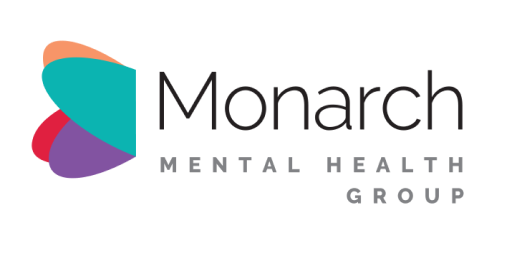Workers' compensation is a crucial support system designed to assist employees who suffer from work-related injuries or illnesses. While traditionally associated with physical injuries, the recognition of mental health conditions in the workplace has grown significantly in recent years. More Australian employees are now lodging claims for mental health conditions, such as anxiety, depression, PTSD, psychological injury, and work-related stress.
However, navigating the workers' compensation process for mental health claims can be complex. Employees often face longer recovery times, stigma, and legal hurdles, making it essential to understand how the system works. Whether you are an employee seeking support or an employer wanting to foster a healthier workplace, here are five key things to know about workers' compensation for mental health in Australia.
1. Mental Health Claims Are Increasing
There has been a significant rise in mental injury workers' compensation claims in Australia over the past decade. According to Safe Work Australia, mental health conditions made up nine percent of all serious workers’ compensation claims in 2021–22, with a nearly 37 percent increase since 2017–18.
Several factors have contributed to this trend, including more awareness and reduced stigma, higher workplace stress due to job demands, and an increase in employees seeking compensation rather than resigning or struggling in silence. While this growth reflects a shift in how mental health is viewed, it also highlights the need for preventative strategies in the workplace to reduce psychological strain.
2. Recovery Takes Longer for Mental Health Claims
One of the biggest challenges for employees lodging workers' compensation claims for mental health conditions is the longer recovery period. These psychological injury claims often result in extended absences from work, making reintegration more difficult compared to those recovering from physical injuries.
Statistics indicate that people with mental health claims take significantly longer to return to work. The time lost for these claims is about four times higher than for physical injuries. Ongoing treatment, including therapy, medication, and other interventions, is often necessary to ensure a full recovery. This extended period highlights the complexity of mental health conditions and the importance of structured return-to-work programs that prioritise well-being.

3. Mental Health Claims Incur Higher Compensation Costs
Mental health and psychological injury claims come with a higher financial cost than claims for physical injuries. Compensation payments for psychological injuries are more than three times greater than those for physical injuries.
This is largely due to the need for specialised medical treatment for psychological dysfunction, longer time away from work, and the complexity of recovery. Unlike physical injuries, which can often be managed with rehabilitation and modified duties, psychological conditions and mental injury conditions require a different approach, which may include extensive therapy, medication, and workplace adjustments. These increased costs highlight the importance of mental health support in preventing work-related stress before it becomes severe.
4. Returning to Work Can Be Challenging
Employees recovering from mental health conditions and traumatic workplace incidents often find it difficult to return to their jobs. Unlike physical injuries, which are usually visible and easier to accommodate, psychological conditions can be harder to manage, especially if the workplace environment contributed to the illness or the traumatic events occurred onsite.
Some of the most common challenges include stigma from colleagues and managers, workplace environment triggers that may worsen symptoms, and a lack of structured return-to-work plans. Studies show that employees with mental health claims struggle more with reintegration compared to those with physical injuries. Workplaces that offer phased return-to-work options, flexible hours, and mental health accommodations are more likely to see successful long-term recovery outcomes and reduced risk or more permanent impairment.
5. Workplace Stress and Bullying Are Major Contributors
Many mental health-related workers' compensation claims stem from high workplace stress, bullying, and harassment. Over half of all serious mental health claims in 2021–22 were due to work-related harassment, bullying, and excessive work pressure.
High-risk occupations, such as healthcare, emergency services, and customer-facing roles, see more psychological injury claims than other industries. Employees working under constant pressure, in toxic environments, or in roles with unrealistic expectations are more likely to develop mental health issues. Employers that implement strong workplace policies, mental health training, and early intervention programs can help reduce these risks and create safer work environments.

Getting the Right Support
Understanding how workers' compensation applies to mental health and psychological injury claims is important for employees and employers alike. With claims of mental injury at work on the rise, workplaces need to take proactive steps to prevent work-related stress and support employees who are struggling.
If you’re experiencing work-related stress, anxiety, PTSD, or depression, seeking professional mental health support can help you navigate recovery. Monarch Mental Health Group offers a range of services for mental health conditions, including psychiatric assessments, psychological therapy, next step medication management, and repetitive transcranial magnetic stimulation (rTMS) for treatment-resistant depression.
With multiple clinics across NSW, Queensland, and Victoria, our team provides compassionate, experienced-based care to help individuals recover from work-related mental health conditions. If you or someone you know is struggling, contact us today to learn more about available treatment options and support programs you may be eligible for or get a referral from your General Practitioner.
FAQs
What mental health conditions can be covered under workers' compensation?
Workers' compensation can cover various work-related mental health conditions and mental injury at work, including anxiety, depression, post-traumatic stress disorder, adjustment disorders, and workplace stress. If your condition or psychological injury is caused or worsened by work-related factors, you may be eligible for a workcover claim and support. Monarch Mental Health Group provides specialised treatment for these conditions, with clinics in NSW, Queensland, and Victoria, offering medical practitioner-led therapy, psychiatry, and repetitive transcranial magnetic stimulation for treatment-resistant depression.
How do I start a workers' compensation claim for mental health?
To start a work-related psychological injury claim, you will need a referral from a GP or psychiatrist, supporting medical evidence, and approval from your employer’s workers' compensation insurer. Monarch Mental Health Group can assist by providing comprehensive assessments, treatment plans - including TMS therapy - and ongoing care to support your claim. Our clinics in Sydney, Melbourne, and Brisbane offer expert-led mental health services tailored to work-related conditions.
What treatments are available for work-related mental health conditions?
Our mental health clinics in Australia offer a range of evidence-based treatments, including psychological therapy, psychiatric care, medication management, and repetitive transcranial magnetic stimulation (rTMS) for depression, anxiety, PTSD, and OCD. Our clinics provide personalised care plans to help employees recover from work-related stress, trauma, and burnout. Treatment options are designed to support long-term recovery and a successful return to work, ensuring patients receive effective, tailored support.
How long does recovery take for mental health workers' compensation claims?
Recovery times vary, but mental health and psychological injury claims often take longer than physical injury claims. Factors like treatment response, workplace support, and severity of symptoms can impact the recovery timeline. Monarch Mental Health Group offers ongoing monitoring, aftercare, and structured return-to-work plans to ensure a smooth recovery process. Our clinics in NSW, Queensland, and Victoria provide medical practitioner-led treatments to help individuals regain mental well-being.
Can I continue working while receiving treatment for a work-related mental health condition?
Yes, in many cases, employees can continue working with adjustments such as reduced hours, modified duties, or remote work options. Monarch Mental Health Group supports individuals through customised treatment plans, therapy, and psychiatric care, ensuring they receive ongoing support while managing their condition. Our many clinics across Sydney, Melbourne, and Brisbane offer tailored treatments from a medical practitioner to help patients balance recovery and work responsibilities effectively. Speak to us today for more information.
.png)
About The Author
Dr Ted Cassidy
Dr. Ted Cassidy is a psychiatrist and co-founder of Monarch Mental Health Group in Australia, which provides innovative treatments for depression, PTSD, and anxiety. Monarch Mental Health is recognized as Australia's first outpatient clinic offering assisted therapy and is the largest provider of outpatient magnetic stimulation therapy.

